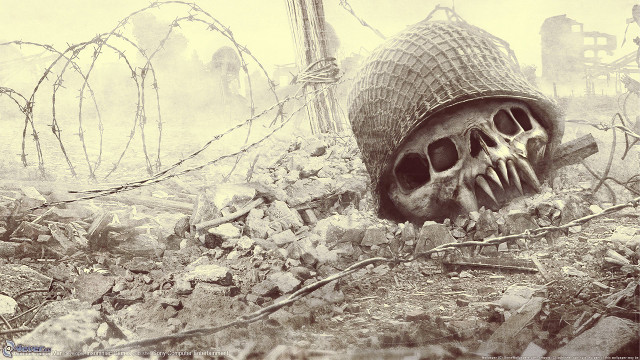It’s always fun to imagine what could have been. What happened in the past can’t be changed, yet books, movies, TV shows, and video games still dare to explore the consequences of some fundamental detail in time being different than what we’ve all learned in our history books. Blending reality with fiction, the following are the best alternate histories in gaming. Note that each entry below is grounded in humanity’s actual past and doesn’t merely recount the early events of an otherworldly series, such as Skyrim.
Gaming’s Best Alternate Histories – Bioshock
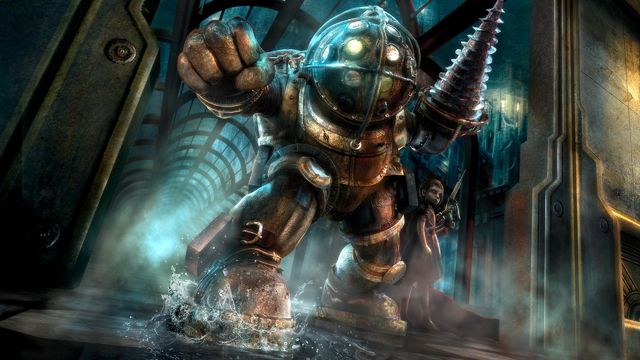
In Bioshock‘s universe, a man named Andrew Ryan built an underwater utopia called Rapture during the 1940s to escape the American government’s growing national power, thanks in part to its victory in World War II. His burgeoning civilization of like-minded social idealists comes across a mysterious substance that gifts humanity supernatural powers, like the ability to wield fire and electricity. Ryan’s city under the sea goes into disarray shortly afterword, which is a shame given how Rapture’s people innovated upon steam-powered machinery.
Going back in time to 1912, Bioshock Infinite follows a similar trajectory, though the reason for Colombia’s downfall has much more to do with divides among the game’s social and ethnic groups. The Hall of Heroes and the Wounded Knee exhibit in particular are dedicated to the achievements of white men over “savage” minorities and indigenous people, a sinister mentality that we still feel the ramifications of in the United States today.
In both titles, humanity as a whole is easily swayed by the sly machinations of tyrants. It’s not too hard to draw comparisons to our own reality’s history of despotic rulers.
Gaming’s Best Alternate Histories – Wolfenstein
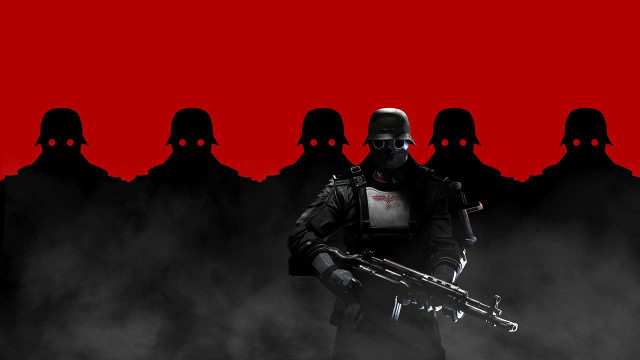
The Wolfenstein franchise explores what the world would look like if the Nazis had won World War II. Through fascinating but terrible new technologies such as giant animatronic dogs and long-range flamethrowers, Germany’s influence extends all over the world. In the most recent entry in the series, The New Colossus, it’s up to protagonist B.J. Blazkowicz to join up with a small but growing group of resistance fighters to topple the Nazi regime and bring about a better version of 1960’s America for his expected child.
We’ve had enough of Nazis in 2018, so we can’t imagine what it must be like for Blazkowicz.
Gaming’s Best Alternate Histories – S.T.A.L.K.E.R.
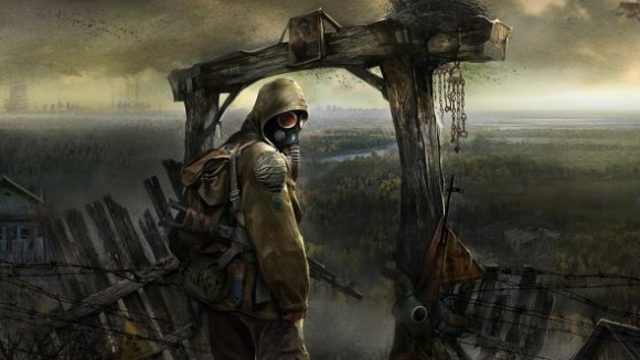
In our reality, a group of workers at the Chernobyl Nuclear Power Plant in Ukraine triggered a large scale environmental catastrophe in 1986 after erroneously conducting a routine safety check. In the S.T.A.L.K.E.R. series, another group of scientists returns to the contaminated area to begin work on a mysterious new project. A similar disaster occurs in 2006, but rather than causing civilization to flee further away from the area, the devastation attracts a group of people who are interested in “stalking” Chernobyl to discover what strange phenomenon exist there.
Players take on the role of one of these scavengers brave enough to explore what lies in the wake of two nuclear explosions. A variety of mutations involving rodents, dogs, and “Bloodsuckers” aren’t too hard to believe, given how the thought of Chernobyl’s disaster evokes a lot of fear in people to this day.
Gaming’s Best Alternate Histories – Resistance
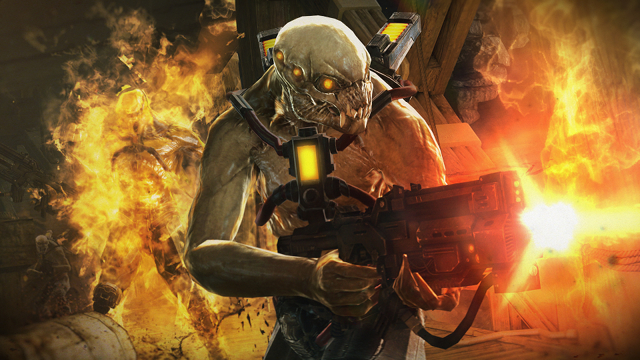
During Resistance‘s World War I, which takes place around the same time as our own, Britain and France initiate a war with Germany after invading Togoland in West Africa. The United States abstains from the battle, and it ultimately ends in peace for all of Europe. As this is happening, an unknown object crashes into Russia and an alien race known as the Chimera are born.
World War II never occurs. Rather, Earth tries to bring its nations together to fight against the invasion. Much of Europe’s citizens are wiped out due to the effects of the Chimeran virus, the likes of which causes people to lose control of their minds and murder one another. Most alternate history fans are probably glad that Resistance‘s alternate timeline is purely fiction. Otherwise, we’d all still be playing board games.
Gaming’s Best Alternate Histories – Fallout
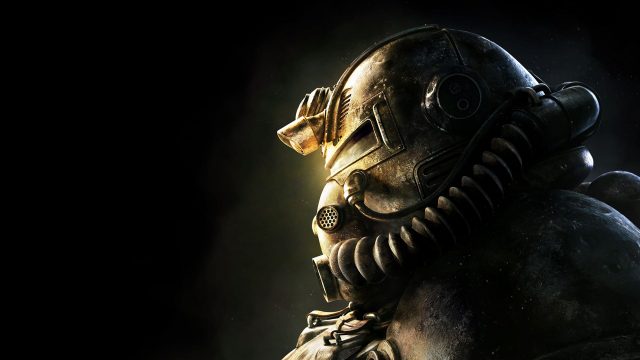
In the Fallout franchise, the United States maintains its 1950s aesthetic for a long time. Innovations like sentry robots, plasma weaponry, and Pip-Boys sit beside black and white television screens and jukeboxes. It’s never explained why the human race in Fallout decides to keep its look after World War II, though it ultimately doesn’t matter.
In 2077, a nuclear war breaks out and renders the world an uninhabitable wasteland. There’s no way of telling whether or not the same will eventually occur in our timeline, so we recommend you keep your fingers crossed until then.
Gaming’s Best Alternate Histories – Command and Conquer: Red Alert
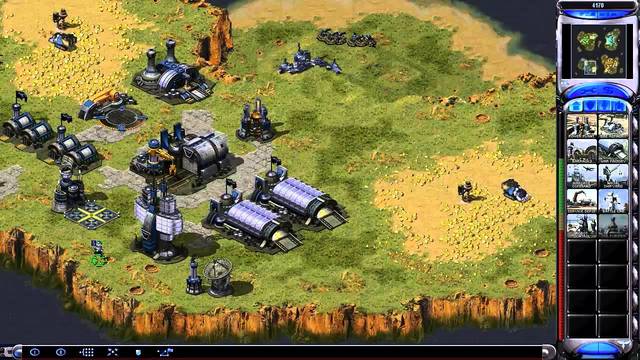
The Command and Conquer: Red Alert series dives into the scientific breakthroughs that occurred around World War II and dares to imagine what the world would look like today if scientists discovered time travel. Famed scientist Albert Einstein finds a method to manipulate reality in order to go back to the past and kill Hitler. Later on in the franchise, the Soviets stumble upon the technology and travel back in time to kill Einstein himself, thus preventing the Allies from developing any kind of advanced weaponry.
These gateways to different points in time eventually allow each belligerent a chance to build sophisticated mechs, each armed with a wide arsenal of murder devices. Red Alert‘s real-time strategy gameplay makes players feel like they’re participating in a large scale war, which very well could have happened if humanity had discovered time travel nearly a century ago.
Gaming’s Best Alternate Histories – Assassin’s Creed
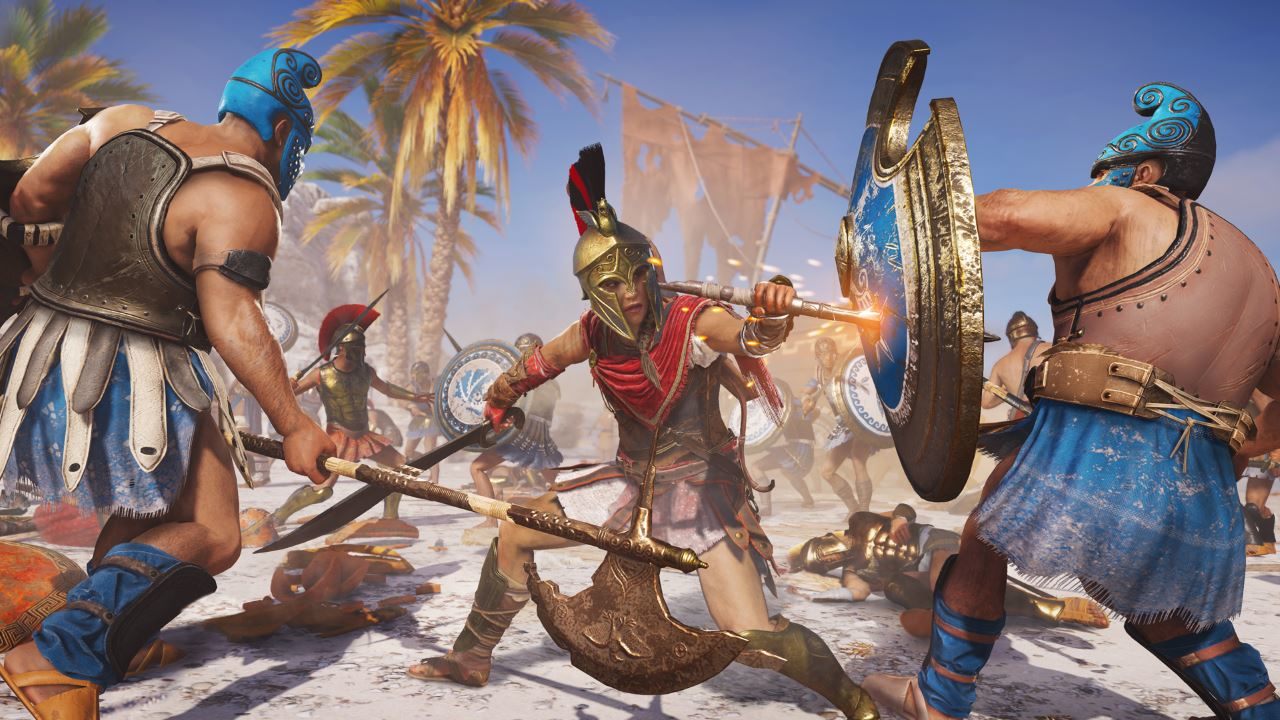
In the Assassin’s Creed franchise, humanity is the successor of a species that went extinct many millennia ago. This mysterious progenitor doesn’t leave much behind, though warns that a second apocalypse will occur sometime in the future. In fear of the impending doom, humanity seeks out a series of artifacts called Pieces of Eden in order to prevent calamity from happening twice.
The Assassin and Templar orders are born over disagreements in how these powerful items should be used. A secret war between the two factions spans centuries and rages on in the present, hidden to most people residing within the series’ universe.
Though it may ultimately be a blessing that the worlds above never existed, it’s interesting to think what reality would be like today if only one of these alternate histories came to be. It’s hard to shake the level of authenticity each game offers, successfully immersing players into slightly different timelines that are just as believable as our own. Each title is commendable in that regard and worth a playthrough, if only to momentarily escape from this planet and live in another that’s not too far away. It beats reading a real history book. Those things are too depressing.
